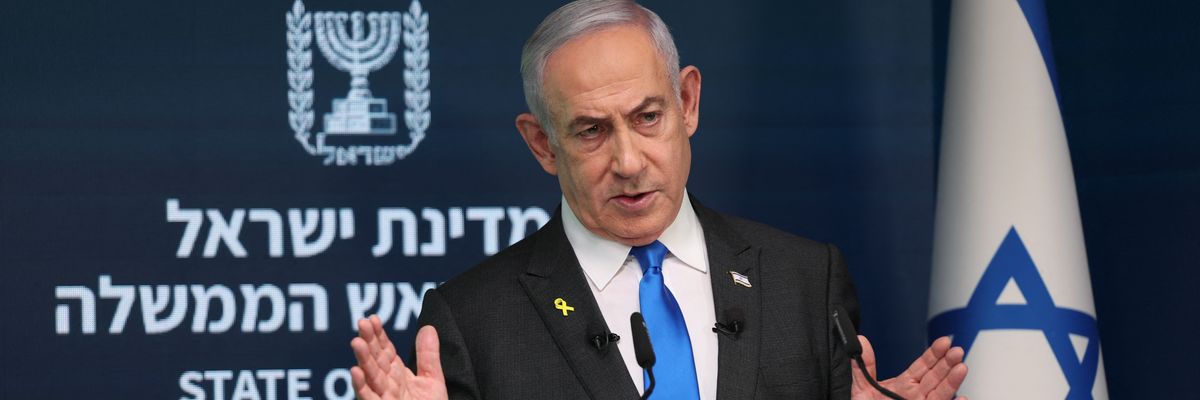The head of a leading Israeli human rights organization told the United Nations Security Council on Wednesday that Israel's far-right government, led by Prime Minister Benjamin Netanyahu, obviously "does not want" to reach a hostage-release and cease-fire agreement with Hamas.
Yuli Novak, the CEO of B'Tselem, said in an
address to the U.N. body that the Netanyahu government is "cynically exploiting our collective trauma" in the wake of the October 7 Hamas-led attack to "violently advance its project of cementing Israel's control" over Palestinian land.
"To do that, it is waging war on the entire Palestinian people,
committing war crimes almost daily," said Novak. "In Gaza, this has taken the form of expulsion, starvation, killing, and destruction on an unprecedented scale."
Watch Novak's full speech:
Novak's remarks came days after Israelis
poured into the streets en masse over the weekend following their government's announcement that Israel Defense Forces (IDF) soldiers recovered the bodies of six hostages in Gaza, heightening outrage over Netanyahu's obstruction of cease-fire talks.
In a
speech on Monday, Netanyahu doubled down on his new hardline demands that have dampened hopes of a deal to end Israel's U.S.-backed assault on Gaza and free the more than 60 living hostages still in captivity in the besieged Palestinian enclave.
Hamas has rejected the prime minister's demand that any deal include indefinite Israeli military control of the Philadelphi Corridor—a narrow strip of land along Gaza's border with Egypt—leaving cease-fire talks at a standstill as the war on Gaza nears the 11-month mark.
Gershon Baskin, a longtime Israeli hostage negotiator who has engaged in back-channel talks with Hamas since the October 7 attack,
told Democracy Now! on Wednesday that the Philadelphi Corridor demand "is a made-up issue by Netanyahu to create... a new excuse for Israel to remain in Gaza."
"It's very clear that Netanyahu doesn't want to end the war," Baskin said.
In a
social media post earlier this week, Baskin accused Netanyahu of "sacrificing the hostages on an altar of his own personal political survival."
The view that Netanyahu is deliberately sabotaging hostage-release talks is hardly fringe: As
Jacobin's Branko Marcetic observed Wednesday, that assessment has become commonplace across Israeli society, including inside Netanyahu's government.
Marcetic cited recent reports from dozens of mainstream Israeli and U.S. media outlets casting Netanyahu—who faces corruption charges in his country—as the primary obstacle to a cease-fire agreement.
One unnamed Israeli official, identified as a senior member of the country's government,
told the Israeli newspaper Haaretz over the weekend that the blood of hostages "is on [Netanyahu's] hands."
"He knew the hostages are living on borrowed time, that the sand in their hourglass was running out," said the senior official, referring to the six hostages who,
according to the Israeli Ministry of Health, were shot at close range sometime around last Thursday.
"He knew there were orders to kill them if there'd be rescue attempts. He understood the significance of his orders and acted in cold blood and cruelly," the Israeli official continued. "They all knew he is corrupted, a narcissist, a coward, but his lack of humanity was fully revealed in all its ugliness in recent months."




